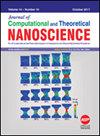Short Term Power Load Forecasting Based on Deep Neural Networks
Q3 Chemistry
Journal of Computational and Theoretical Nanoscience
Pub Date : 2021-05-01
DOI:10.1166/jctn.2021.9622
引用次数: 0
Abstract
The purpose of this study is to find the most appropriate forecasting method by applying the machine learning and deep learning techniques that have recently been representing an outstanding performance in various fields to power load forecasting and evaluating their performance. Forecasting model has been realized by using logistic regression, decision tree, support vector machine (SVM) algorithm as the machine learning technique, and deep neural network (DNN) algorithm as deep learning technique and compared with each other. In order to find the most appropriate method for power load forecasting, the performance of machine learning and deep learning model was compared and evaluated. Performance was evaluated by realizing total 7 forecasting models including 3 machine learning-based single forecasting models, 1 deep learning-based single forecasting model, and 3 complex forecasting models. As for complex forecasting model, forecasting rate turned out to be 96.91% for logistic regression-based complex forecasting model, 97.08% for decision tree-based complex forecasting model, and 96.43% for support vector machine-based forecasting model that the complex forecasting model combined with decision tree and deep neural network represented the most outstanding performance. With this study, it is anticipated to precisely forecast power load saving the electronic energy while preparing for a plan to efficiently distribute and utilize energy in connection with smart grid technology such as Energy Storage System (ESS) or Energy Management System (EMS).基于深度神经网络的短期电力负荷预测
本研究的目的是通过将最近在各个领域表现突出的机器学习和深度学习技术应用于电力负荷预测和评估其性能,找到最合适的预测方法。采用逻辑回归、决策树、支持向量机(SVM)算法作为机器学习技术,深度神经网络(DNN)算法作为深度学习技术,实现了预测模型,并进行了比较。为了找到最合适的电力负荷预测方法,对机器学习和深度学习模型的性能进行了比较和评价。通过实现7种预测模型,包括3种基于机器学习的单一预测模型、1种基于深度学习的单一预测模型和3种复杂预测模型,对模型的性能进行了评价。在复杂预测模型中,基于逻辑回归的复杂预测模型预测率为96.91%,基于决策树的复杂预测模型预测率为97.08%,基于支持向量机的预测模型预测率为96.43%,其中决策树与深度神经网络相结合的复杂预测模型表现最为突出。通过这项研究,可以准确预测节省电子能源的电力负荷,并与储能系统(ESS)或能源管理系统(EMS)等智能电网技术相结合,制定有效分配和利用能源的计划。
本文章由计算机程序翻译,如有差异,请以英文原文为准。
求助全文
约1分钟内获得全文
求助全文
来源期刊

Journal of Computational and Theoretical Nanoscience
工程技术-材料科学:综合
自引率
0.00%
发文量
0
审稿时长
3.9 months
期刊介绍:
Information not localized
 求助内容:
求助内容: 应助结果提醒方式:
应助结果提醒方式:


